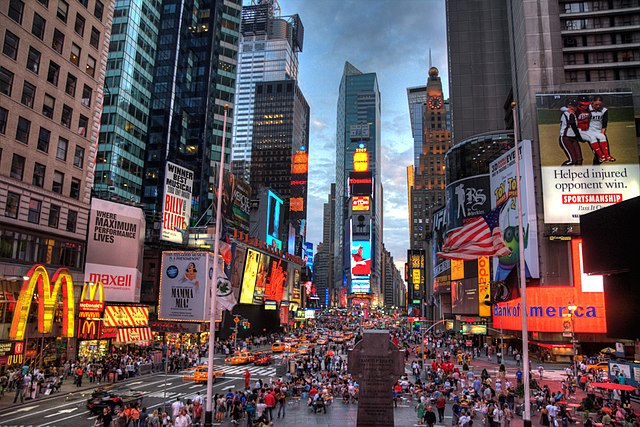Sun sets on globalisation?
August 16, 2019 | Expert Insights

Background
Globalization has been the dominant trend since the late 19th century. By the 21st century, globalization was hailed as an ultimate in human progress, and its elements were adopted over the economic, cultural and political sector. New forms of communication, the rise of transnational supply chains, the information revolution and institutions such as the World Trade Organization were all the outcome of global interconnectivity.
In the recent past, the rise of regional powers along with evolution in technology has led to greater levels of disruption and confusion. According to the International Monetary Fund, the introduction of new technology and investment of foreign capital in developing countries may have increased the levels of inequality.
After the September 11 attacks, the ‘anti-globalization’ movement entered the public consciousness. In 1999, the Battle of Seattle led to the shutdown of the World Trade Organization, and there were solidarity actions across the globe. There were beliefs that neoliberal globalization feeds into its extreme opposite in tribal forms of ethno-nationalism and religious fundamentalism. Identity crisis among nationals, foreign interference within the political institution, geopolitical shifts and terrorism is changing the mood from interdependency to slow disintegration.
Analysis
Around the globe, nationalistic politicians are espousing a self-centric “our country first” mentality - displaying scepticism or outright hostility in a backlash to globalization. They are making an effort to reverse the model that was based on the loosening of controls on capital and construction of global supply chains.
The underlying cause for the US-China trade war lies in the disproportionate trade balances, which once began with the integration of cheap labour from emerging markets such as China and India. But due to expanded trade in manufactured goods, 156,250 US jobs were lost on the net each year between 2001 and 2016. There was an increase in migration of workers, which led to the blending of ideas, lifestyles, cultures. In 2016, President Trump advocated a rejection of globalism and urged Americans to ‘embrace the doctrine of patriotism’. He believes that international collaboration has resulted in the US being swindled. “We will no longer allow our workers to be victimized, our companies to be cheated and our wealth to be plundered and transferred,” Trump said, detailing his rationale to slap China with another $200 billion in import tariffs with a promise to implement more, should Beijing retaliate. “The United States will not be taken advantage of any longer,” he said.
Credit Suisse’s former chief investment officer, Michael O’Sullivan, author of ‘The Levelling: What’s Next After Globalization’ notes that ‘Brexit and Trump constitute part of stage one of “a paradigm shift that will see the disintegration of the world order that we have come to know over the past 30 years, such as globalization”.
In developing nations, the reaction stems from threats to tradition due to an influx of foreign products and ideas. Fundamentalist groups protest the incursion of foreign practices as eroding traditional culture, and they have embarked upon different ventures that focus on their countries overseeing and crafting a global strategy that is premised on the very tenets of global interconnectivity.
China’s president, Xi Jinping, at the Davos gathering, said that his country would assume the leadership of 21st-century globalization. Defending the current economic order, Xi said that China was committed to making globalization work for everyone, which was its responsibility as “leaders of our times”.
Assessment
- Globalization was never a democratic choice by the people of the world. The process has been business-driven, emanating from business strategies and tactics for business ends.
- Certain dimensions of globalisation in which culture, history and spiritual values play a big role have caused differences. For example, Abu Dhabi’s eagerness to open a satellite of the famed Louvre museum in the UAE led many French people to believe that Europe is selling its soul.
- Institutions of the 20th century have likely fulfilled their roles and there is a need to shift to newer institutions such as global climate authority or a body that can oversee the internet or cyberwar. The reversal has possibly led to ceding of power over trade to global bodies such as the World Trade Organisation.
- Sanctions have played an inimical role for the interdependent world because their isolationistic nature curtails international integration. Fragmentation in trade links is likely to lead to similar fragmentation in international finance and investment.
- There is an increased sense of nationalism and more defensive means to protect or even invent traditions. Xenophobia is the response to newly emerging hybrid cultures that make it hard for people to find their identity.
Image Courtesy: Terabass [CC BY-SA 3.0 (https://creativecommons.org/licenses/by-sa/3.0)]








Comments